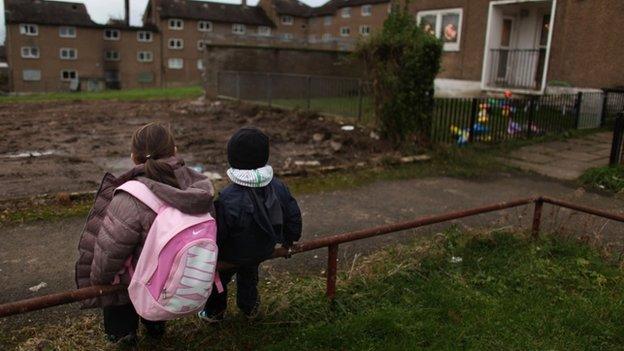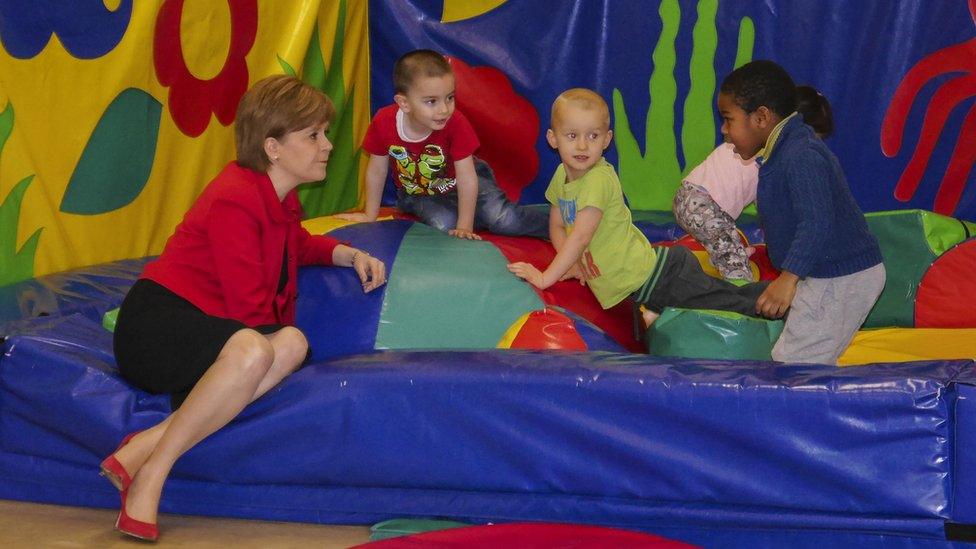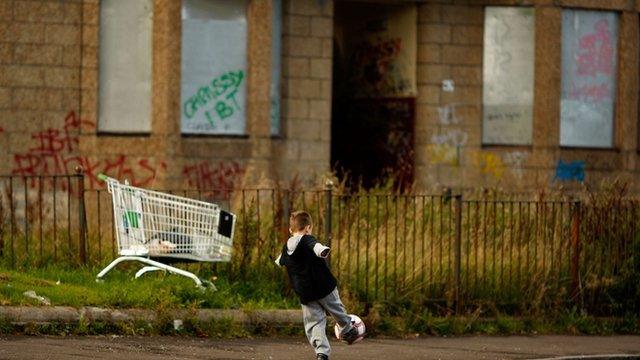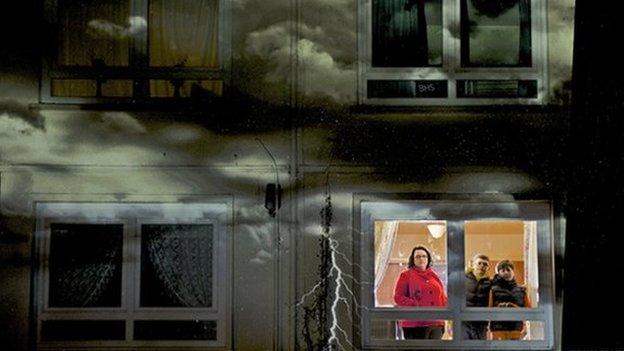Poverty report urges end of Scots council tax freeze
- Published

A government report found half a million Scots were living in poverty, including 100,000 children
An independent report into poverty in Scotland has urged the government to end the council tax freeze in 2017/18.
Naomi Eisenstadt, the independent advisor on poverty and inequality, set out 15 recommendations for what more could be done to tackle the problem.
Her report, external urges "bold" moves on tax reform, the living wage, childcare and public service delivery.
First Minister Nicola Sturgeon welcomed the report, announcing £1m of funding for early learning and childcare.
Earlier government reports have found that half a million Scots are living in poverty, including 100,000 children.
Oxford University research fellow Ms Eisenstadt was appointed by Ms Sturgeon in 2015 to provide advice on poverty and inequality.
In her report, she said the Scottish government had been "signalling changes to the council tax since its first term in office".
She said the government should "consider ending the council tax freeze from 2017/18 onwards", saying this would "make a contribution to protecting public services that are particularly supportive of families in poverty".
'Constructive approach'
She also said the government should build more social housing, to focus on expanding the living wage to larger employers and do more to ensure people claim the benefits they are entitled to.
Ms Eisenstadt said she was "struck by the genuinely open and constructive approach" people had taken with her during her inquiry.
She said: "The key message for me is that everyone has a role to play, local government, the voluntary sector, the Scottish government and people in poverty themselves, who clearly have the best understanding of the challenges of living on a low income."


Ms Sturgeon said the government would respond to the report by the end of March
Analysis by Jamie McIvor, BBC Scotland local government correspondent
For some time there's been a debate over just who's been helped most by the council tax freeze.
The Scottish government argues the freeze has been a real help to family budgets - with the biggest proportionate impact on those earning more modest incomes. Critics contend the way the freeze actually works is leading to cuts which may have the most impact on the poor and the vulnerable.
The bulk of council money is from the government - money to compensate them for freezing the council tax is only one part of the equation.
In a wide-ranging report for the government, the poverty tsar acknowledges that this debate has been going on.
The comments are made within the context of a contribution to the question of what should happen next to council funding. The tsar says the freeze should end in 2017 before any wider overhaul of council funding.
The SNP is still debating its policies for the Holyrood election including what should happen to the freeze and options for replacing or reforming council tax.
But her remarks will be seized upon by the government's critics. Some would contend that if the freeze should end next year - then why not now?
They'd argue the fundamental arguments haven't suddenly changed - and many councils across Scotland are currently looking for new cuts and savings as they're set to receive less overall from the government in the coming year than they'd anticipated.
Last week Moray Council proposed putting up bills by 18% to avoid cuts. A few others are looking seriously at the idea of breaking the freeze - but while the current system for the freeze continues, any rise would have to be significant to make any difference to their finances.

The Scottish government has welcomed the report's findings, and moved immediately to provide funding for up to six early learning and childcare trials to test different delivery models.
Launching the report alongside Ms Eisenstadt, the first minister said the government would respond formally to the report before the end of March.
She said: "When I appointed Naomi to the role I was clear that she would work independently and be frank and challenging in her scrutiny of not only the work the Scottish government was doing to alleviate poverty and inequality, but also what more can be done.
"We now need to study the report and look at what we're doing well and should continue to do, and where we can improve."
'We can do more now'
Scottish Labour said the report was evidence of how "timid" the SNP had been in its near-decade in power at Holyrood, citing fuel poverty, the living wage and housing.
Jackie Baillie said: "Naomi Eisenstadt has revealed the gap between the SNP's campaigning rhetoric and their record in government.
"After a decade in power and a majority in parliament, the SNP have been managerial rather than radical in government."
Scottish Green MSP Patrick Harvie welcomed the report saying "we can do more right away".
He added: "Housing costs in many parts of Scotland are disgracefully high, and too many people of low incomes are forced to find a home from the expensive private rented sector.
"Building more social housing is absolutely crucial, but we also need to regulate rent levels in the private sector. The housing bill that's up for debate in Holyrood is our chance to do that, but we have to make sure that rent control measures are strong enough."
- Published16 March 2015

- Published20 October 2014

- Published4 March 2014
